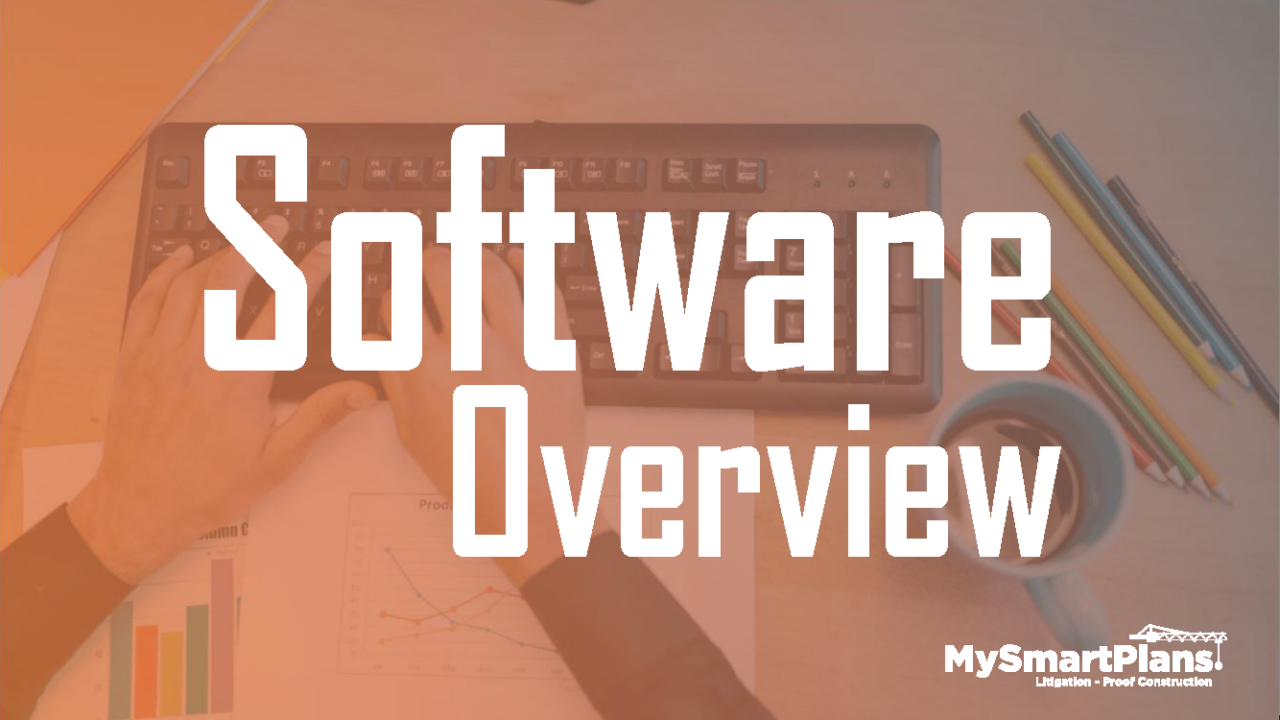MySmartPlans has saved thousands of hours in costly rework and has allowed us to collaborate with our team members in the most efficient manner possible.

Honors & Awards
Business Of The Year
Kansas Women-Owned Businesses 2017
Rule Breaker Award
New York Rule Breakers 2015
25 Outstanding Businesses Under 25 Employees
Twenty Five – 25 2012
CEO of the Year
City Union Mission 2009
Women Who Mean Business
Biz Journal 2009
Vision of Excellence
National Association of Women in Construction – 2009
About MySmartPlans

Born from Hard-Won Experience, Built for Unshakeable Control:
MySmartPlans isn’t just another software company; it’s the culmination of resilience and expertise forged in the crucible of construction chaos. Co-founders Shelley (CEO) and Dominick (President), a highly successful 45-year contractor, experienced firsthand how a single project plagued by insufficient data could unravel decades of success, forcing them to close their previous company’s doors.
They didn’t just rebuild; they reinvented construction project management to conquer the very issues that cost them dearly.
MySmartPlans delivers unparalleled project control through a unique fusion of advanced technology and dedicated human expertise. We embed an experienced Digital Information Librarian directly into your team. These specialists are far more than support; they are the catalyst for rigorous Data Governance, meticulously organizing every document and data point.
This creates radical transparency and efficiency, drastically mitigating the risks associated with poor document oversight. For 19 years, we’ve empowered clients to deliver billions of dollars in projects on time and budget, backed by an ironclad, audited project history proven to prevent costly disputes and litigation. We offer the world’s most advanced construction intelligence solution, ensuring clarity and success from groundbreaking to handover.
Honors & Awards
Business Of The Year
Kansas Women-Owned Businesses 2017
Rule Breaker Award
New York Rule Breakers 2015
25 Outstanding Businesses Under 25 Employees
Twenty Five – 25 2012
CEO of the Year
City Union Mission 2009
Women Who Mean Business
Biz Journal 2009
Vision of Excellence
National Association of Women in Construction – 2009
About MySmartPlans

Shelley Armato and Dominick Armato
Shelley is the Founder and CEO of MySmartPlans. Her husband Dominick is Co-founder and President. They suffered firsthand the effects of chaos in the industry. Dominick, a 45-year contractor, was wildly successful and one project with insufficient data caused them to shut the doors on that company. But they rose again and reinvented the construction industry by streamlining the business.
MySmartPlans is a software-as-a-service solution with an experienced digital information librarian as part of your team, who creates transparency, organization, and efficiency in construction projects. They are the driving force behind Data Governance, which mitigates the risk associated with insufficient document oversight. MySmartPlans has been improving the industry for 16 years and has a revenue aggregate of over 19 billion dollars. Build on time, on schedule, and with audited as pre-discovery files that are proven to prevent litigation!
MySmartPlans Track Record:
17 years in business
100% of our 2,130 projects were protected from litigation
$23 billion in project value completed
99.9% of projects were completed on time & on budget
18% project on-site savings
Platform Features
MySmartPlans Track Record:
17 years in business
100% of our 2,130 projects were protected from litigation
$23 billion in project value completed
99.9% of projects were completed on time & on budget
18% project on-site savings
Learn More
The MySmartPlans Manifesto
MySmartPlans has saved thousands of hours in costly rework and has allowed us to collaborate with our team members in the most efficient manner possible.

MySmartPlans helped us focus on the project rather than collection of data & documentation. The MSP team knows what needs to be included and does a great job gathering, managing and ensure timey responses on required information. It also gives us a centralized location for project documentation, giving us comfort of knowing where to find information in the future. MSP allows us to work smarter and be smarter.

Technology has made promises over the years that someday we would all be paperless and all electronic, but there has been a missing link in sharing information between groups. MySmartPlans is the medium that fills that gap.

As a construction litigator…to be able to point and click and find the documentation that relates to that specific change order, whatever, in seconds as opposed to days or weeks manually would be a game changer.

Enabling Transparent Construction Processes: A Guide for Modern Teams
Introduction
The construction industry is no stranger to challenges such as delays, cost overruns, and miscommunication. With numerous stakeholders, complex workflows, and large volumes of data, ensuring transparent processes is essential for modern construction teams. Transparency allows teams to make informed decisions, identify bottlenecks, and improve project efficiency. In this blog post, we will explore the importance of transparency in the construction industry and discuss how modern teams can enable it with the help of software solutions.
Why Transparency Matters in Construction
Transparency plays a crucial role in construction projects for several reasons. Firstly, it fosters trust among stakeholders, including owners, contractors, and subcontractors. By providing clear and accurate information, construction teams can build strong relationships based on trust, leading to successful project outcomes.
Secondly, transparency increases accountability and reduces the likelihood of disputes. When all team members have access to real-time project data, it becomes easier to track progress, identify potential issues, and ensure that tasks are completed on time. This transparency promotes accountability and reduces the risk of finger-pointing or conflicts arising from miscommunication.
Thirdly, transparency enables better decision-making. Construction projects involve numerous decisions about design changes, material selections, and workflow modifications. When project teams have access to all relevant information, they can make informed decisions that align with project goals, budget constraints, and schedule requirements.
Enabling Transparency with Software Solutions
To enable transparency in construction processes, modern teams can leverage software solutions specifically designed for the industry. These tools provide a centralized platform for collaboration, communication, and data management, ensuring that all team members have access to accurate and up-to-date information.
Project management software is a vital tool for enabling transparency in construction projects. These platforms allow teams to track project progress, assign tasks, monitor timelines, and communicate in real-time. With project management software, all stakeholders can access project-related information, including schedules, documents, and updates, from anywhere and at any time. This accessibility ensures that everyone is on the same page, reducing the risk of miscommunication or delays.
Document management software is essential for maintaining transparency in construction processes. These tools allow teams to store, organize, and share project documents efficiently. By centralizing documents, teams can ensure that the most up-to-date versions are accessible to all stakeholders. Document management software also enables version control, so team members can track changes and access previous versions if needed. This transparency in document management minimizes errors, confusion, and delays caused by outdated or missing information.
Transparent financial management is crucial for construction projects. Construction accounting software provides teams with accurate cost tracking, budget management, and financial reporting capabilities. By integrating project management data with accounting records, these tools enable stakeholders to monitor project costs, analyze spending patterns, and evaluate the financial health of a project. This transparency in financial management helps teams identify cost-saving opportunities, mitigate risks, and ensure that projects stay within budget.
Building Information Modeling (BIM) software is revolutionizing the construction industry by enabling real-time collaboration and visualization of project data. BIM platforms create a digital representation of a building or infrastructure project, incorporating information about the design, materials, and construction process. This digital model can be accessed and updated by all stakeholders, ensuring that everyone has a clear understanding of the project scope, progress, and requirements. BIM software promotes transparency by facilitating collaborative decision-making, reducing errors, and enhancing overall project efficiency.
Benefits of Transparent Construction Processes
Implementing transparent construction processes through software solutions offers several benefits to modern teams.
Improved Communication: Transparent processes ensure that all team members have access to the same information, reducing the risk of miscommunication or misunderstanding. This clarity fosters effective communication, enabling teams to collaborate and resolve issues more efficiently.
Efficient Resource Allocation: Transparent processes allow project teams to accurately track resources, such as materials, equipment, and labor. This data enables teams to optimize resource allocation, minimize waste, and ensure that the right resources are available at the right time, reducing unnecessary costs and delays.
Enhanced Risk Management: Transparent processes provide teams with real-time data and insights, allowing them to identify and mitigate risks promptly. By promptly addressing potential issues, teams can avoid costly delays, rework, or disputes, ensuring that projects stay on track and within budget.
Increased Client Satisfaction: Transparent processes build trust and confidence with clients by providing them with real-time information about project progress, schedules, and budgets. Clients appreciate transparency as it enables them to stay involved and informed throughout the project, leading to higher satisfaction levels and potential referrals.
Conclusion
Enabling transparency in construction processes is vital for modern teams to achieve project success. By leveraging software solutions such as project management, document management, construction accounting, and BIM software, teams can ensure that all stakeholders have access to accurate and up-to-date information. Transparent processes promote effective communication, efficient resource allocation, enhanced risk management, and increased client satisfaction. As the construction industry continues to evolve, adopting transparent practices and leveraging technology will become increasingly important for teams looking to stay competitive and deliver successful projects. So, embrace transparency and empower your team to achieve construction excellence.
MySmartPlans is the leading software solution for construction project management, offering transparency, organization, and efficiency to ensure on-time and on-budget completion of projects. With our experienced digital information librarians and data governance capabilities, we help mitigate risks and prevent litigation in the construction industry.
A recent Oracle article, “How AI Is Reshaping Construction,” correctly identifies the transformative potential of artificial intelligence in addressing the industry’s critical challenges of labor

What Are You Really Buying with MySmartPlans? (It’s Not Just Document Management) Discover how MySmartPlans goes beyond construction document management to deliver confidence, control, and

The Construction Data Explosion Every major construction project today operates like a massive data machine. Airports, hospitals, high-rises—these projects generate not just thousands of documents,
The only third party administered construction management platform
803 Armstrong
Kansas City, KS 66101
Phone:
(816) 221-7881
Email:
shelley@mysmartplans.com
support@mysmartplans.com

Powered By EmbedPress